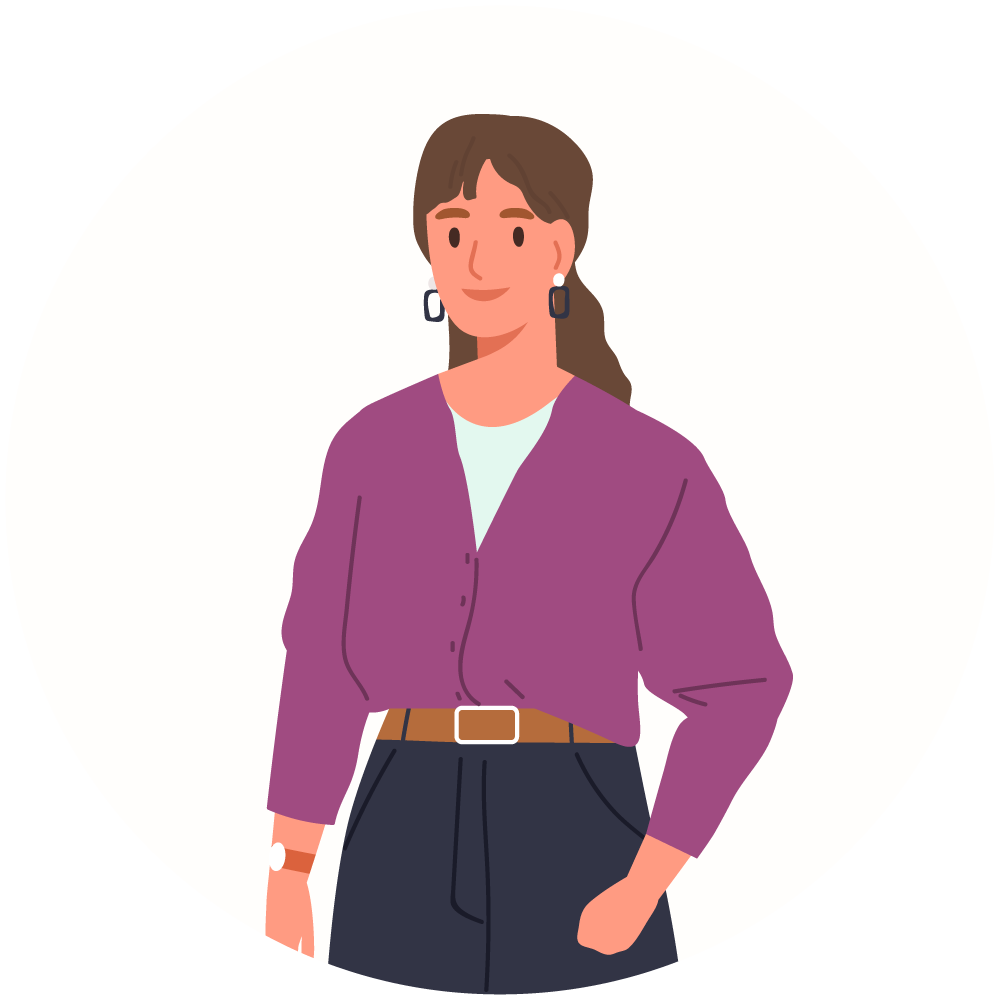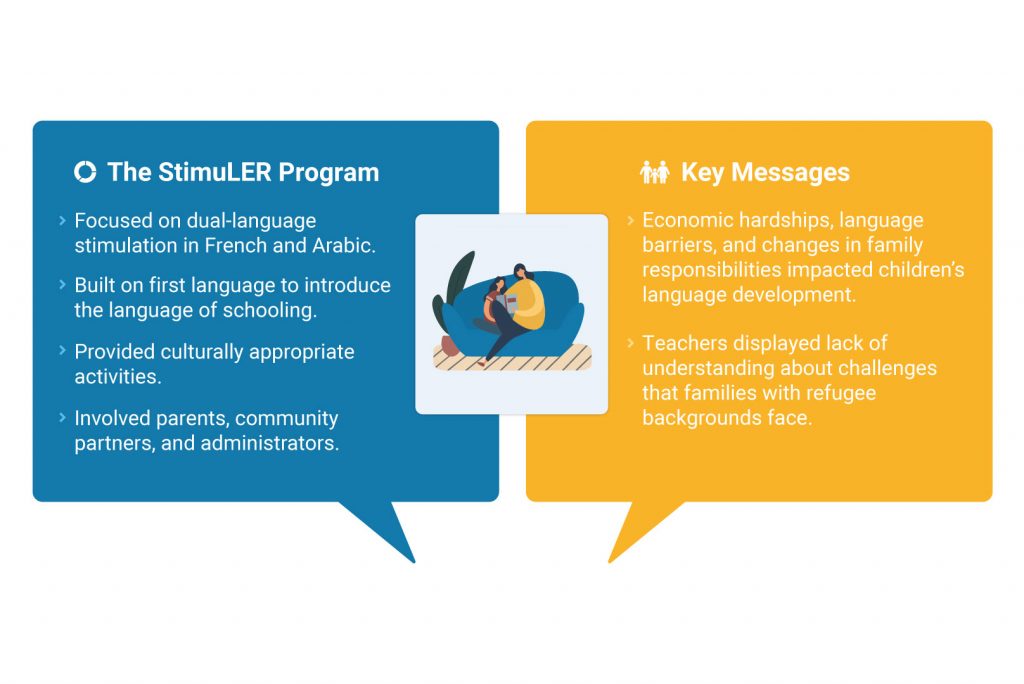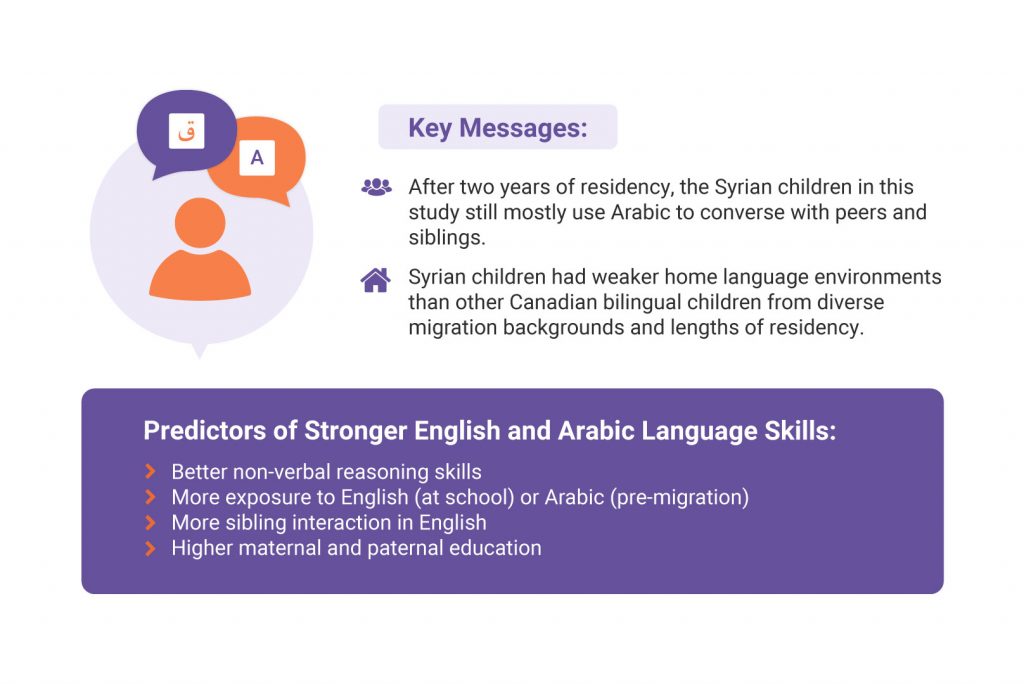Language: Home language maintenance and second language acquisition among Syrian refugee children
- The Refuge: Learning the Language: Supporting Refugee Youth Learning English
Language barriers are a challenge for Syrian refugee children and families when it comes to school participation.
In Montreal, Dr. Andrea MacLeod and colleagues found that parents struggled to communicate with schools due to language barriers. Parents were concerned with their children’s learning and did their best to support them despite not speaking French; however teachers often assumed that children received little at-home support for their schooling.
Many teachers lack an understanding of the challenges faced by refugee families, including how difficult it is for adults to learn a new language while adapting to a new country.
“One of the things teachers really need to have more awareness of … is that not all English Language Learners have the same needs … Some come from backgrounds where they’re highly supported by highly educated professional parents and high SES … they have fewer needs than kids who, say they missed years of schooling back in their home country … [Their] parents might have a lot of struggles adapting here, they might be dealing with mental health issues because of trauma …” – Johanne Paradis, The Refuge Ep. 3

Dr. Alexandria Gottardo and colleagues found that in Canada, children with refugee experience were placed in age-appropriate grades; however, their language abilities were well below grade level. Dr. Andrea MacLeod and colleagues found that some teachers had unrealistic language expectations for preschool aged refugee children.

“I think the bottom line is that the students want to learn…so, I think having the patience from an instructor’s point of view and from the family’s point of view too, to support the children. I think that’s key.” – Mazen El-Baba, The Refuge, Ep. 3
Developing children’s home language can make it easier for them to learn a second language but home language development often declines after arrival in Canada.
“We know that, from a research perspective, … for newcomer families, it is better to keep the heritage language and not drop it completely,…there’s so many different reasons why it’s important – cognitively, socio-emotionally, economically, educationally.. … It’s important not to always think that just reaching ahead in English is the only goal to integration, successful social inclusion and integration…” – Johanne Paradis, The Refuge Ep. 3

Dr. Andrea MacLeod and colleagues found many Syrian refugee children were experiencing delays in their home language development, and that there was little support for maintaining the home language (Arabic) in the community. Dr. Alexandria Gottardo and colleagues found that, due to interrupted schooling, refugee children’s written Arabic abilities were lower than expected at their age. Meanwhile, Dr. Evangelia Daskalaki and colleagues found that refugee children’s Arabic development was behind that of their Arabic-speaking peers in Syria.

“On reflection, I think as a child I may have been a little resentful towards Arabic because I just felt that it wasn’t useful to me, to achieve my goal of fitting in. So, I think I even attempted to not speak Arabic as much as I can so that I can improve my English language skills. …Because it was a huge motivator to actually acquire those skills to be able to fit in society here.” – Mazen El-Baba, The Refuge Ep. 3
Even though refugee children are not acquiring Arabic language skill at the same rate as their monolingual peers, Dr. Evangelia Daskalaki and colleagues found that they are still showing good comprehension of syntax and grammar in their home language.
Main Takeaways:
- Supporting home language development among refugee children has a positive effect on their understanding of grammar and syntax in the second language.
- Singing, playing, translating books, and shared/dialogic reading (where an adult asks the child questions about what they are reading) can support first and second language learning.
- Children who arrive at an older age tend to initially pick up the language quicker, so older children can help younger siblings navigate the school system and learn the majority language.
- Syrian refugee children are improving their home language skills while rapidly acquiring their second language. We should celebrate their achievements and successes, while continuing to support children and parents’ language learning and integration into schools.
- Language teachers can use salient features of a child’s first language to provide strategies to learn a second language. For example, Arabic-speaking children can use their morphological processing and awareness to learn more complex English words.
- Infographics
MacLeod and colleagues “Supporting the Dual Language Learning of Refugee Preschoolers” (2020)
Click to view infographic
Paradis and colleagues “Examining Language, Literacy, and Wellbeing in Syrian Refugee Children” (2020)
Click to view infographic


